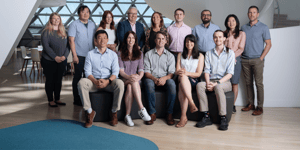
About Us
Our Steering Committee
The role of the Steering Committee is to help the SAGC set strategic direction for the centre, oversee the centre’s management, stakeholder reporting, establishment and monitoring of compliance processes, performance reviews and managing any conflicts of interest. The Steering Committee is comprised of an independent Chair, and a representative from each partner organisation. The Steering Committee and the SAGC operate in a manner consistent with ASIC and AICD principles, standards, and reporting requirements to oversee the high-level functioning and activities of the SAGC.
Independent Chair
Steering Committee Members
PROFESSOR Michael Goodsite
Pro Vice-Chancellor (Research Operations and Commercialisation) The University of Adelaide Division of Research and Innovation
Scientific Advisory Committee (SAC)
The SAC is comprised of local researchers, clinicians, consumers, and other important stakeholders. The role of the SAC is to advise and support the SAGC Steering Committee and provide input into the strategic direction of the SAGC.
Associate Professor Bettina Berger
Scientific Director, School of Agriculture, Food and Wine
The University of Adelaide
The University of Adelaide
Full Bio
With a background in biotechnology and a PhD in molecular plant biology, A/Prof Bettina Berger used a two-year fellowship at the Australian Centre for Plant Functional Genomics to focus on the then emerging field of plant phenomics. Since 2010, A/Prof Berger has work at the Adelaide node of the Australian Plant Phenomics Facility and in 2015 became Scientific Director. She enjoys the diversity of working in a national research facility, with a whole range of different users, research questions and challenges on a daily basis. A/Prof Berger has focused on establishing protocols and methods for high-throughput screening of various plant species in controlled environments using imaging technology to help the research community take advantage of the benefits that modern phenotyping techniques have to offer.
Read More
Dr. Anthony Borneman
Principle Research Scientist
The Australian Wine Research Institute
The Australian Wine Research Institute
Full Bio
Anthony is a Research Manager at the Australian Wine Research Institute and an Affiliate of the University of Adelaide. He leads research that is focused on applying genomics to understand the genetic basis of biological diversity in winemaking, including grapevines, commercial wine yeast and bacteria and wild ferments.
Read More
Professor Alex Brown
Aboriginal Health Equity Theme Leader at SAHMRI, and Professor of Medicine at the University of Adelaide
Full Bio
Alex is an internationally leading Aboriginal clinician/researcher who has worked his entire career in Aboriginal health in the provision of public health services, infectious diseases and chronic disease care, health care policy and research. He has established three highly regarded research groups over the last 15 years, and currently leads a large research group (50% of whom identify as Aboriginal and/or Torres Strait islander Australians). Much of his work has been at the difficult interface of geographical isolation, complex cultural context, severe socioeconomic disadvantage, inequitable access to and receipt of care and profound health disparities. His transdisciplinary program of research focuses on documenting the burden and contributors to health inequality in Indigenous Australians, with a primary focus on cardiovascular disease (CVD), diabetes and cancer. Since commencing at SAHMRI 8 years ago, he has overseen the establishment of an integrated centre of excellence in Indigenous chronic disease and public health research. He leads projects in CVD epidemiology and policy; the social, clinical, and biological correlates of diabetes and its complications; intervention trials; documenting cancer inequalities and how best to overcome them; innovative mixed-methods primary care research; and evaluations of health care models, systems and programs.
Read More

Professor Robert Edwards
Director of Bioinformatics and Human Microbiology
Flinders Accelerator for Microbiome Exploration (FAME)
Flinders Accelerator for Microbiome Exploration (FAME)
Full Bio
Rob is the Director of Bioinformatics and Human Microbiology for the Flinders Accelerator for Microbiome Exploration (FAME). He coordinates the computational analysis of DNA sequences associated with the microbiome. Although Rob's research focus is on the human microbiome, he has also published work on many different environments. Prof Edwards research focus has led to breakthroughs in our understanding of how viruses interact with their hosts, and how viruses from around the world carry important genetic information.
Read More
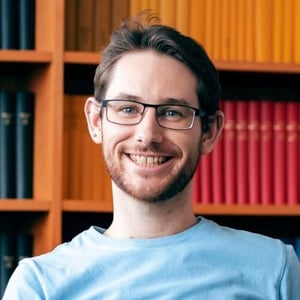
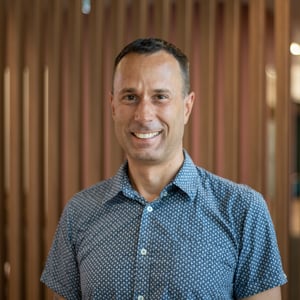
Dr. Wai Yee Low
Senior Bioinformatician
Full Bio
Dr. Wai Yee Low has more than 9 years post-doctoral experience in academia, mainly in genomics and bioinformatics. He has expertise in analysing genomic data of a diverse range of bovine species such as cattle, water buffalo and gaur, which has resulted more than 40 research publications, including multiple papers in Nature Communications and Nature. He also created the first indicine cattle (Brahman) reference genome and played a key role in the creation of more cattle pan-genomes through his affiliation with the Bovine Pangenome Consortium.
Read More
Dr. Jessica Marathe
Cardiologist, Royal Adelaide Hospital
Full Bio
Jessica Marathe is a cardiologist currently undertaking subspecialty training at the Royal Adelaide Hospital, Adelaide. She completed her undergraduate medical training at the University of Tasmania in 2012, and subsequently moved to Adelaide to complete her internship and has worked in Adelaide since. Jessica has had a longstanding interest in cardiovascular genetics, having helped established the Tasmanian Branch of the Australian Genetic Heart Disease Registry in 2010. She is a member of the Cardiac Genetics Subcommittee of the Statewide Cardiology Clinical Network, and helped establish the original clinical pathway for cardiac genetic testing within South Australia. Jessica is also about to submit her PhD which has focussed on cardiovascular genetics, including patient experiences living with inherited cardiac conditions.
Read More
Professor Hamish Scott
Joint Director of the CCB ACRF Cancer Genome FacilitySA Pathology
Full Bio
Prof Scott leads a dynamic academic/diagnostic department integrating basic and clinical research. It has developed and translated new genomic technologies including national and international firsts, for both germline (e.g. accredited WES and RNAseq) and somatic (e.g. BCR-ABL resistance) disease for improved diagnosis, treatment and monitoring. He is both an advocate for and user of national diagnostic and research genomic networks for patient benefit. For example, he is the scientific lead of a national “Genomic autopsy of perinatal death” study (MRFF – GHFM) through Australian Genomics and a molecular screening and clinical trial pilot program, the Molecular Screening and Therapeutics in Leukaemia and Lymphoma (MoST-Lly) with Omico.
Read More
Associate Professor Luke Selth
Director of the Prostate Cancer Research Group
Flinders University
Flinders University
Full Bio
Selth completed his PhD at University of Adelaide and then undertook post-doctoral studies at the London Research Institute, funded by a prestigious European Molecular Biology Organization post-doctoral fellowship. He returned to Adelaide in 2009 and has since established an internationally-recognised research program aimed at improving outcomes for men with prostate cancer. Selth regularly publishes his research in prominent journals including recent papers in Cancer Research, Nature Medicine, European Urology, Science Translational Medicine, EMBO Journal, Oncogene and Nucleic Acids Research. His lab is currently funded by Cancer Council SA, Movember, The Hospital Research Foundation, Flinders University, the Flinders Foundation and Cancer Australia.
Read More
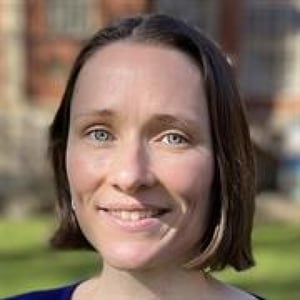
.jpeg?width=300&name=Ying%20(1).jpeg)
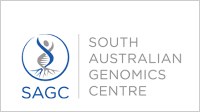


.png?width=300&name=Michael%20Goodsite%20website%20(1).png)


.png?width=300&name=BBerger_Profile_BW(2).png)




